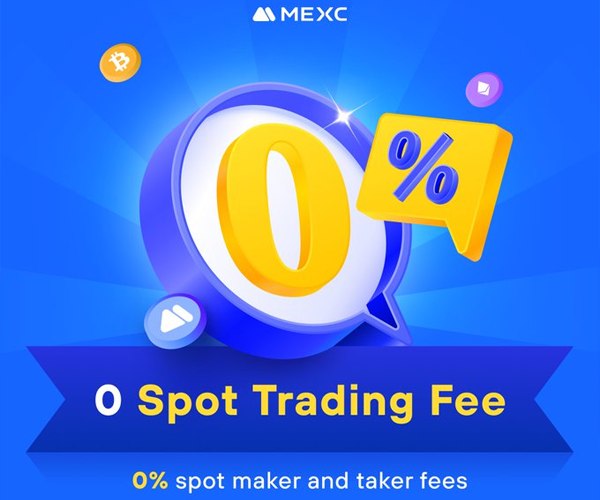What makes the Solana ecosystem a standout in today’s competitive blockchain landscape?
The growth of the Solana ecosystem is impressive, thanks to its advanced blockchain tech and smart network expansion strategies. Over 2,500 developers work on it every month. This creates a strong, growing community. Furthermore, having more than 2,000 active validators shows serious decentralization. This builds trust and security within the ecosystem. The Total Value Locked (TVL) in DeFi on Solana is over $2 billion. This highlights its big attraction to investors.
Solana focuses on making tools and frameworks easy for developers, especially with the Rust programming language. This helps developers do great work. Combining this with regular network upgrades keeps Solana ahead of the curve. Also, Solana manages lots of transactions at low costs. This has brought many decentralized apps (dApps) and NFT markets, like Magic Eden, to its platform. Magic Eden’s daily sales reach millions. This lively scene keeps drawing in new projects and partners. It keeps Solana growing in a smart and sustainable way.
Key Takeaways
- Solana’s active validator count exceeds 2,000, signaling strong decentralization.
- DeFi on Solana boasts a Total Value Locked (TVL) of over $2 billion.
- Solana nurtures a developer-friendly environment, with significant contributions to projects.
- Daily trading volumes on NFT marketplaces like Magic Eden reach into the millions.
- Solana’s disciplined network upgrades enhance reliability and performance.
The Rise of Solana: Performance and Innovation
Solana’s rapid growth comes from its top-notch performance and new features. It handles thousands of transactions every second and keeps fees low. This makes it great for both users and investors.
High Transaction Throughput
The Solana network can handle over 65,000 transactions every second. This is up from its first benchmark of 50,000. Its block times are super quick at 400 milliseconds. This speed makes it easier for apps, digital collectibles, and finance projects to do well on Solana.
Low Fees and Scalability
Solana keeps its fees low, which helps it grow. The DeFi part of Solana has more than $2 billion in it. Also, more than 500,000 new SOL wallets are made each month. This shows more and more people trust and use Solana. Its strong network supports lots of growth, making a lively and thriving ecosystem.
Developer-Friendly Environment
Solana is easy for developers to get into thanks to its tools and support. Over 2,500 developers are working on it, bringing innovation. Big projects like Serum and Star Atlas stand out in Solana’s mix. It also gives out 2.5 million tokens every month to those keeping the network running. Solana has all the tools needed for ongoing development and new ideas in blockchain.
Key Metrics of Solana’s Success
The importance of key metrics in viewing Solana’s growth is huge. For example, its network growth shows in its ability to process over 3,000 transactions every second. And it does this with settlement times around 400 milliseconds.
Solana’s ecosystem is expanding impressively. It has very low transaction fees, under one cent. Even with past outages, its development community stayed dedicated. They keep innovating and pushing the project forward. Now, by December 2023, we see a big spike in on-chain activity. This shows Solana’s strength and attractiveness.
Many metrics show how well Solana does. Over 1,500 validators actively contribute, securing the network. They stake about 67% of Solana’s circulating supply. This shows high trust and participation. Also, about 2.5 million tokens are distributed monthly to validators, supporting the infrastructure.
Understanding the real activity on Solana means looking at vote vs. non-vote transactions. More non-vote transactions mean more network growth and user engagement. Financially, Solana hit a high with $5.08 million in transaction fees. An 80% increase in DeFi’s Total Value Locked (TVL) points to high demand for its tech.
Solana’s metrics also cover
- average transaction fees,
- daily block count,
- and average block or settlement time.
These metrics, along with user and call numbers on Solana’s programs, show a thriving system. Solana watches its stablecoins for DeFi and payments potential. It also looks at the top 1000 wallets. All these elements highlight a vibrant, growing blockchain space. This drives the ongoing expansion of the Solana ecosystem.
Role of Validators in Solana’s Network Expansion
Validators play a key role in growing the Solana network. They keep the network safe and working well. Plus, they help it grow. Now, there are more than 1,500 validators, showing that people trust Solana’s tech. Let’s look at why validators are so important to Solana.
Increased Validator Participation
Having more validators is vital for the growth of Solana. It makes the network more decentralized and secure. The number of validators has grown from about 1,000 to over 1,500, showing more trust in Solana. Validators help by creating and voting on blocks, which strengthens Solana’s proof-of-stake system.
Rewards Structure
The way validators are rewarded is key to attracting and keeping them. Running a validator costs about $41,000 a year. This includes money for servers and bandwidth. Validators make between 7.337% and 7.755% a year in rewards. They get inflation rewards, base fee rewards, and Jito MEV rewards.
Validators can also get commissions between 5% and 10% on what they earn. This gives them a good financial reason to participate. For example, validators earn around $97.4M a year from fees, and another $293.4M in stake-based rewards. This shows why more people want to become validators.
| Revenue Source | Percentage of Staked Tokens | Annual Revenue |
|---|---|---|
| Inflation Rewards | 7.32% | $146.5M-$293.4M |
| Base Fee Rewards | 0.016% | Included in Inflation |
| Jito MEV Rewards | 0.42% | ~$89M |
| Priority Fees | 0.217% | ~$3.3M-$8.4M |
Starting as a validator needs a big investment. To cover their costs, validators need between $4.1M and $7.1M staked. But the rewards help balance the costs. This keeps validator participation strong, which helps Solana keep growing.
DeFi Driving Solana Ecosystem Growth

Decentralized Finance (DeFi) plays a big role in Solana’s growth. Platforms like Serum and Raydium add a lot of value. They work with DEX aggregators such as Jupiter. Together, they make the Solana ecosystem versatile.
The Total Value Locked (TVL) in Solana’s DeFi has jumped 80%. Now, nearly $4 billion is locked in these projects. This shows how much people like and trust the Solana platform. It attracts lots of investors and developers.
Solana’s DeFi stands out for being very efficient with money. It can handle thousands of transactions every second at low costs. This keeps transaction fees low. That’s key for a healthy DeFi space. Solana’s fast and cheap infrastructure helps it grow quickly.
More and more developers are joining the DeFi sector on Solana. Over 2,500 developers are now working on Solana projects. This shows Solana is a welcoming and supportive community. It keeps getting new ideas and apps. This makes the ecosystem rich and varied.
| Metric | Value |
|---|---|
| Total Value Locked (TVL) in DeFi | $4 Billion |
| Active Developers | Over 2,500 |
| Transactions Per Second (TPS) | Thousands |
| Circulating Supply Staked | 67% |
Solana’s rapid growth makes it a strong contender in DeFi. It’s also important for blockchain’s broader growth. The focus on new ideas, being efficient, and working together keeps drawing in new projects. This makes the Solana ecosystem exciting and full of potential.
The Power of Strategic Partnerships
Strategic partnerships have greatly helped grow and extend the reach of the Solana ecosystem. Collaborating with different blockchain projects and entities, Solana brought in new technologies. It also expanded its user base and opened new market chances.
These partnerships have not only brought in the latest technologies. They also increased the value and impact of the Solana ecosystem. Through partnerships, Solana solved big problems like scalability and network congestion. This ensures users have a smooth experience, even in busy times.
Partnerships in areas like decentralized finance (DeFi) and non-fungible tokens (NFTs) are big wins for Solana. These collaborations have led to many success stories. These stories show how powerful strategic partnerships can be within the ecosystem.
One big draw for partnerships with Solana is how it can handle so many transactions per second. This is perfect for apps that need to be fast and efficient, like trading platforms. Learn more about how partnerships drive Solana’s growth.
Also, Solana’s low transaction fees attract many. This is a big plus for developers and users using decentralized apps. The growing number of developers in the ecosystem highlights how appealing Solana’s tools are.
Investments from Solana Labs and various venture capital firms also play a big role. These investments provide essential funding for innovation within the Solana ecosystem. Solana offers tools and APIs that make building, testing, and deploying apps simpler. This makes it an inviting place for developers.
| Aspect | Contributions |
|---|---|
| Handling Transactions | Thousands per second |
| Transaction Fees | Fraction of other platforms |
| Developer Growth | Significant increase last year |
| Investments | Support from Solana Labs and venture capital |
In conclusion, the power of strategic partnerships in the Solana ecosystem has truly been a key factor in its growth. By forming collaborations and securing investments, Solana stays ahead. It is ready to meet the needs of the changing digital world.
Solana’s Infrastructure Upgrades and Reliability
Solana has improved its ecosystem a lot by upgrading its infrastructure. These upgrades help the platform manage more users and developers. By boosting its technology regularly, Solana keeps its system advanced. This ensures it works well and can grow without problems.
Regular Network Upgrades
Solana often updates its network to stay reliable. These changes are key to solving issues quickly. The network stays strong thanks to over 2,000 active validators. This allows it to support many decentralized applications on a solid foundation.
Handling Network Congestion
Handling congestion is crucial for Solana. It has learned from past outages to manage traffic jams on its network. By always improving and considering new solutions, Solana keeps transactions fast even when it’s busy. Projects like Serum and Metaplex prove that the platform can handle a lot of action.
Here’s some data to show how strong Solana’s infrastructure is now:
| Key Metric | Current Value |
|---|---|
| Total Value Locked (TVL) in DeFi | $2 billion |
| Active Validators | Over 2,000 |
| Monthly Rewards to Validators | 2.5 million tokens |
| Circulating Supply Staked | Approximately 67% |
These numbers show how dedicated Solana is to being fast and reliable. It plays a big role in blockchain technology today.
Solana’s Approach to Decentralized Finance (DeFi)
Solana’s DeFi approach shines by managing thousands of transactions each second. It outperforms competitors like Ethereum in throughput. This is key for supporting advanced DeFi innovations. Its blockchain relies on Byzantine Fault Tolerance (BFT) for top-notch security. This sharply cuts the risk of hacks in DeFi protocols.
The Solana developer community plays a big role, encouraging teamwork and growth. This active community drives DeFi innovation with new projects. Projects like Serum, Solend, Raydium, Marinade, and Saber show Solana’s diverse DeFi scene. They use Solana’s fast processing to offer advanced financial services smoothly.
Layer 2 solutions like Starknet and Optimistic Rollups boost speed and reduce costs. This underlines Solana’s dedication to affordable financial services. Adopting these technologies has brought more users and boosted confidence in Solana’s DeFi offerings.
Projects such as Raydium, Audius, and Chainlink picked Solana for its stable and scalable platform. This highlights the ecosystem’s strength in hosting various DApps. It grows through constant network upgrades and adding new tech like zero-knowledge proofs and sharding.
Solana ensures strong node performance, aiding the network’s reliability and growth ability. This strength is vital as the ecosystem expands. Solana faces issues like congestion by planning strategic upgrades and increasing capacity. These actions show Solana’s commitment to seamless DeFi innovation.
To sum up Solana’s DeFi strategy, see the benefits in the table below:
| Feature | Advantages |
|---|---|
| High Transaction Throughput | Handles thousands of transactions per second, ensuring efficiency. |
| Cost Efficiency | Low transaction fees, promoting widespread DeFi adoption. |
| Security | Enhanced by Byzantine Fault Tolerance (BFT) consensus. |
| Scalability | Layer 2 solutions and sharding improve transaction speeds and scalability. |
| Diverse Ecosystem | Notable projects like Serum, Solend, and Raydium drive innovation. |
| Active Developer Community | Promotes collaboration and continuous growth within the DeFi space. |
In summary, Solana’s DeFi approach is changing financial services with its high efficiency, strong security, and low costs. The innovation in decentralized finance here shows a promising future for DeFi on Solana.
NFT Ecosystem Boost on Solana
The Solana ecosystem is changing the digital art and collectibles world. Over 110 million NFTs have been minted. This shows Solana can handle lots of transactions quickly and affordably, encouraging more users.

Solana NFTs are more secure, protecting against fraud and theft. Exciting projects like Degenerate Ape Academy, Okay Bears, and Claynosaurz are part of Solana’s unique collection. The option of fractional ownership means more people can own parts of an NFT, making it more accessible.
Marketplaces and Trade Volume
Marketplaces for NFTs are seeing a lot of action. Magic Eden, Tensor, Hyperspace, and Solanart help millions in trades happen every day. Solana’s ability to handle many transactions quickly and cheaply draws in users, challenging other networks like Ethereum.
Accessible Creation for Artists
Artists find it easier to create with Solana. They can mint huge numbers of NFTs cheaply, thanks to tech advancements. Artists earn ongoing money from resales thanks to built-in royalties and auctions. Smart contracts let artists do cool, new things with digital art.
Solana is working on its network to avoid issues like delays. By continually innovating, Solana aims to stay on top for NFT solutions that need to handle lots of activity.
Cross-Chain Integrations and Interoperability
Cross-chain interoperability makes Solana a key player in the blockchain world. It links different networks, making asset transfers easy and broadening utility. The Wormhole, for example, lets users quickly move assets between Solana and other blockchains. This makes using blockchain smoother and better for everyone involved.
Solana’s teamwork with Carrier shows how powerful this can be. Carrier uses Solana’s tech to handle up to 65,000 transactions every second. This collaboration not only speeds up transactions but also scales up services. It points to growth for both, showing the power of working together across chains.
Cross-chain tech has a big impact on decentralized finance (DeFi). DeFi services can now reach out across different blockchains. This means users get a better experience and perhaps even better rates. It builds trust and encourages more use of DeFi platforms.
One big issue cross-chain tech solves is broken up liquidity. By letting assets move freely between platforms, these bridges unify the crypto market. This unified market works better, is easier for users, and deepens pools of liquidity.
Also, shared validator and light client protocols are crucial for safe and easy cross-chain chats. Shared validators could make transaction fees lower and allow for secure data sharing without needing trust. Light clients, on the other hand, help with swapping data quickly without downloading the whole blockchain.
Cross-chain interoperability isn’t just about making things easier; it’s a doorway to new ideas. For instance, it lets developers mix Bitcoin’s security with Ethereum’s quick processing. This could lead to better supply chain tracking. It also makes managing crypto simpler for users, avoiding the hassle of many wallets and interfaces.
User-Friendly Experience and Adoption
One standout feature of the Solana ecosystem adoption is its focus on being user-friendly. The platform makes it easy for developers and users to start. This is because of seamless interfaces and simplified tools.
The platform welcomes everyone by offering Software Development Kits (SDKs) in 10 languages. This global approach helps more developers create and innovate within Solana. Whether it’s for DeFi apps or NFTs, its easy use stands out.
Solana also boasts fast transactions and low fees. These qualities are key for developers to launch projects smoothly. They also allow users to enjoy DApps without high costs.
Solana’s growth is impressive, with over 2,000 validators and a TVL above $2 billion in DeFi. This shows the community’s trust and active participation. Plus, 67% of Solana’s circulating supply is staked, proving strong community trust.
Here are some important numbers about Solana:
| Metric | Value |
|---|---|
| Active Validators | 2,000+ |
| Total Value Locked (TVL) in DeFi | $2 Billion+ |
| Daily NFT Trading Volume | Millions of Dollars |
| Circulating Supply Staked | 67% |
| Active Developers | 2,500+ |
| Monthly Validator Rewards | 2.5 Million Tokens |
The focus on users helps Solana ecosystem adoption grow, backed by a lively community. Its innovative strategies lay a strong foundation for long-term growth.
Developer Tools and Resources
Getting developers involved is key to Solana’s success and growth. Solana provides many well-crafted tools and resources for developers. These are made for a range of development needs, from creating smart contracts to deploying apps. Let’s look at the specific tools available for different uses on Solana.
Frameworks and SDKs
The developer ecosystem at Solana is rich with strong frameworks and SDKs. These support many programming languages. Anchor is a well-liked framework that makes building smart contracts easier. Rust is the go-to for 69% of developers for its safety and speed. Solana’s SDK comes in languages like Rust, JavaScript, and Python, giving developers flexibility.
Solana also offers tools like the Solana CLI, Playground, faucets, and Test Validator to help with development. JavaScript and TypeScript are often used for making interactive frontends. These frontends work well with Solana’s backend setups.
Specialized Tooling for Niche Markets
Solana has special tools for areas like gaming and Decentralized Finance (DeFi). It can handle 2000-3000 transactions per second. This is great for fast-paced games and trading apps. Plus, Solana’s fee system is efficient, making it cost-effective for these uses.
| Tools | Purpose | Languages Supported |
|---|---|---|
| Solana CLI | Command-line tool for interacting with the Solana blockchain | Rust, JavaScript, Python |
| Solana Playground | Web-based IDE for rapid smart contract development | Rust |
| Solana Faucets | Provides test tokens for development | N/A |
| Solana Test Validator | Local validator for testing and development | Rust, JavaScript |
Solana’s growing popularity has attracted many projects. This is due to its efficiency and innovative approach. DeFi on Solana jumped to $1,482M in Q4 2023, a growth of 505.0% YoY. Developer tools like SDKs and specialized APIs help projects in DeFi and gaming thrive. This shows Solana’s dedication to supporting varied and creative applications.
Conclusion
Looking back on Solana’s journey, we see its success comes from smart tech and forward thinking. Its quick transaction speed and low fees attract lots of users. Projects like Serum and Mango Markets prove its strength for fast apps.
More developers are joining Solana, bringing fresh projects in DeFi, NFTs, and games. This shows its broad use and strong growth plans. Ongoing upgrades make Solana a leader in blockchain tech. Its network is reliable and can grow big without problems.
Solana gets stronger through strategic partnerships and getting more validators. It connects across the globe and uses new tech like zero-knowledge proofs. This makes Solana flexible and strong. It’s set to keep growing in the blockchain world, leading with fast processing and cheap costs.
Source Links
- https://medium.com/@ayushkmrjha/the-growing-solana-ecosystem-analyzing-trends-adoption-and-collaborations-153c45f687f4
- https://medium.com/@rosegakono/solana-ecosystem-a-comprehensive-analysis-of-growth-challenges-and-future-outlook-eaa4290fb7d9
- https://www.gate.io/learn/articles/solana-s-economic-ecosystem-a-comprehensive-analysis/2083
- https://medium.com/@razoredmanchi/the-evolution-of-the-solana-ecosystem-growth-trends-and-outlook-9d909f5d5386
- https://21.co/research/on-chain-insights-11-solana-key-metrics
- https://medium.com/@aadesolaade2341/decoding-solana-unraveling-the-role-of-validators-and-fee-economics-bd3eb40a08c3
- https://www.blockchain-council.org/blockchain/validators-in-solana-network/
- https://www.ratherlabs.com/blog/looking-to-build-in-solana
- https://medium.com/@jamesalexa0001/solana-defi-the-future-of-fast-secure-and-innovative-finance-d1d4df663c99
- https://101blockchains.com/nft-in-solana-ecosystem/
- https://solanafloor.com/news/carrier-bolsters-solana-ecosystem-with-seamless-cross-chain-interoperability
- https://blaize.tech/article-type/overview/cross-chain-interoperability/
- https://blockapps.net/blog/top-defi-projects-on-solana-to-watch/
- https://markdamasco.medium.com/solana-development-landscape-2024-tools-daos-and-the-growth-trajectory-95d2a94fc3dd
- https://blog.quicknode.com/a-comprehensive-overview-of-the-solana-dapp-ecosystem/
- https://solana.com/news/2023-state-of-solana-developer-ecosystem
- https://medium.com/@fiayobiseidu005/dynamics-of-the-solana-ecosystem-a-comprehensive-analysis-of-growth-innovation-trends-and-da4e4c03a372




